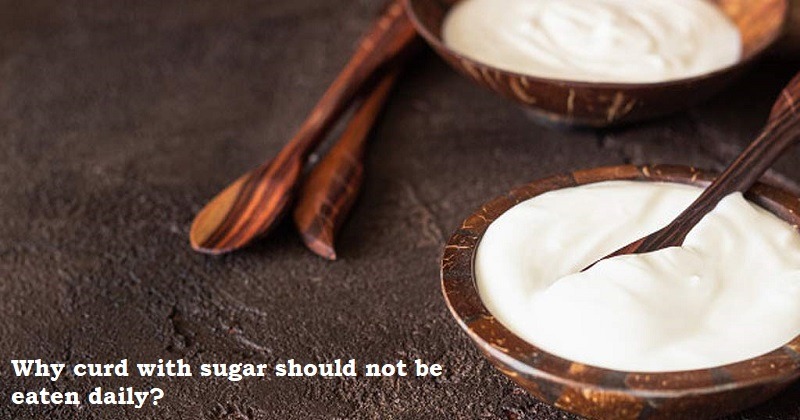
In Indian tradition, it is considered auspicious to eat curd and sugar before leaving the house or starting a significant task. It appears that the relationship with Lord Shiva, who is regarded as one of the most significant gods in Hinduism, is what makes this combination lucky. Hindu legend claims that Dahi Shakkar is a favourite of Lord Shiva, who is claimed to have eaten it while meditating.
Also, on the auspicious occasion of Maha Shivratri, this combination of Dahi and Shakkar is offered to Lord Shiva as a bhog and subsequently distributed; it is believed that eating this concoction will bestow luck and blessings from Lord Shiva himself.
However, there are people who consume this combination daily after their meals, which may hold some disadvantages.
It is stated that the calories in this curd and sugar mixture are high. Depending on the amount of sugar used, a serving may have 200–300 calories. Regularly consuming too many calories can result in weight gain and other health issues. You may feel more hungry due to the amount of sugar added to curd, which might result in weight gain.
Sugar is the primary ingredient in the sweet dessert dahi shakkar. A daily sugar intake that is too high can raise the chance of developing diabetes. Diabetes can be brought on when curd has an excessive amount of sugar, which raises blood sugar levels.
Curd, or yoghurt, is a healthy food that contains beneficial bacteria and nutrients like calcium, protein, and vitamin D. However, when it is mixed with sugar, the sugar content can be high enough to contribute to tooth decay over time. When excess sugar is consumed, it reacts with the bacteria present in dental plaque to produce acid, which can then erode the tooth enamel, leading to the formation of cavities.
Dahi Shakkar should be avoided if a person has lactose intolerance and/or sugar sensitivity difficulties because it can cause diarrhoea. Moreover, excessive sugar consumption can cause an imbalance in the gut microbiota, which in some people can disrupt digestion and cause diarrhoea.

Post Your Comments